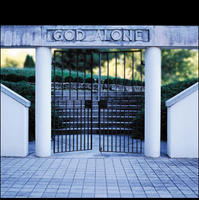“And so I urge you: go after experience rather than knowledge…Knowledge tends to breed conceit, but love builds. Knowledge is full of labor, but love, full of rest…Yet you say: ‘Rest? What can he possibly be talking about? All I feel [in meditation practice] is toil and pain, not rest.’…My answer is simple: you find this work painful because you are not yet accustomed to it. Were you accustomed to it, and did you realize its value, you would not willingly give it up for all the material joys and rest in the world…I call it rest because your spirit does rest in a freedom from doubt and anxiety about what it must do…And so persevere in it with humility and great desire, for it is a work that begins here on earth but will go on without end into eternity.”
—Privy Counsel, Chapters 23 and 24And so ends the anonymously written 14th century masterpiece on Christian meditation,
The Book of Privy Counsel. Though a mystic, the author is always completely realistic about the challenges of the contemplative life, and so even in the end he acknowledges the pain and toil that often accompanies this work. Yet he emphasizes that this difficulty is part of the process, even a grace in itself, as we let go of our habitual tendency to want to know with the mind and we begin to really
know (experience) with our hearts, or souls, or very being. This kind of knowledge is complete freedom from fear, because in this ocean of being the contemplative has seen that there is only one Life, which is the Life of us all.
---------------------------------------------------------------------------------
This concludes my commentary on the
Book of Privy Counsel. For those of you on my mailing list, I will e-mail a Word version of the edited commentary, along with a brief introduction, in coming days. In the introduction I'll try to give a little more historical and theological background on this seminal piece of contemplative literature. If you are not on my mailing list (basically my e-mail address book; in other words, if I don't know you personally) but would like to be included, please post a comment to this blog along with your e-mail address. I'll remove your address from the blog and then include you in the next mailing.
I feel very blessed to have been led down this path, to have received the gift of these teachings, and to have the ability to share them with you. I feel wholly inadequate to do so, but I am encouraged by those of you who have read the blog and have received some blessing from it yourselves. We have no idea what miracles we may be working in the simple words we share with each other.
I never know exactly where this journal is going, so I don't know what I'll write about next. I am interested in looking at the teachings of the Desert Fathers, the earliest Christian monastics, but some other direction may emerge. Log on tomorrow if you are so inclined and we'll see what happens. Pax.
 “Abbot Anthony said: Just as fish die if they remain on dry land so monks, remaining away from their cells, or dwelling with men of the world, lose their determination to persevere in solitary prayer. Therefore, just as the fish should go back to the sea, so we must return to our cells, lest remaining outside we forget to watch over ourselves interiorly.”
“Abbot Anthony said: Just as fish die if they remain on dry land so monks, remaining away from their cells, or dwelling with men of the world, lose their determination to persevere in solitary prayer. Therefore, just as the fish should go back to the sea, so we must return to our cells, lest remaining outside we forget to watch over ourselves interiorly.”







